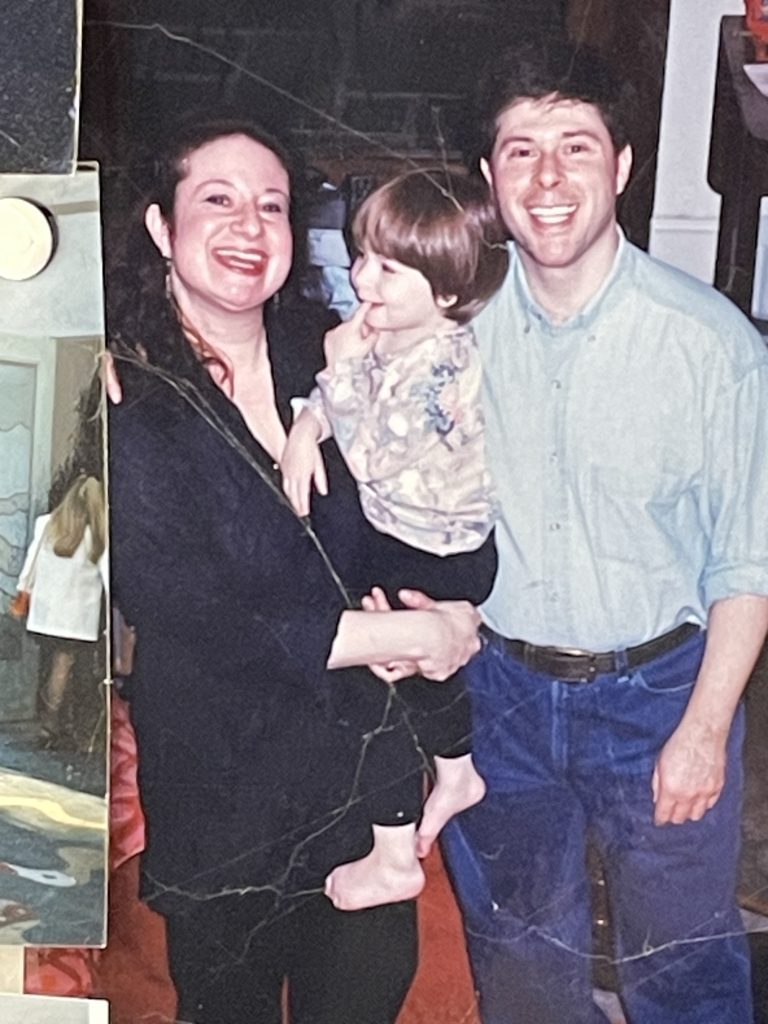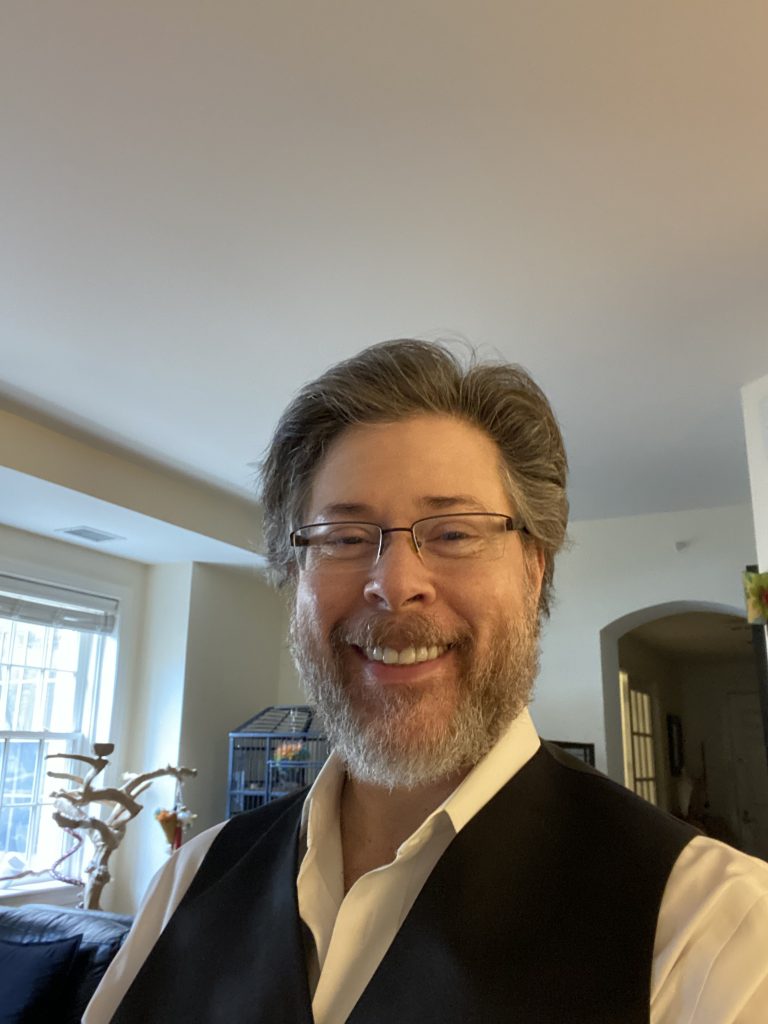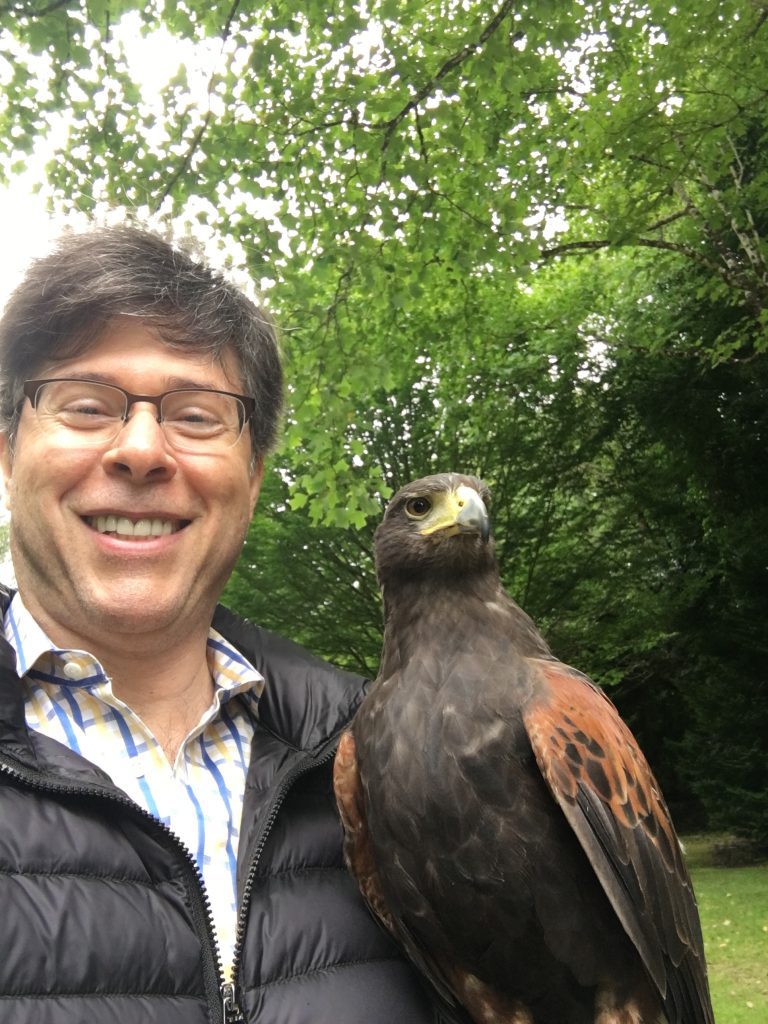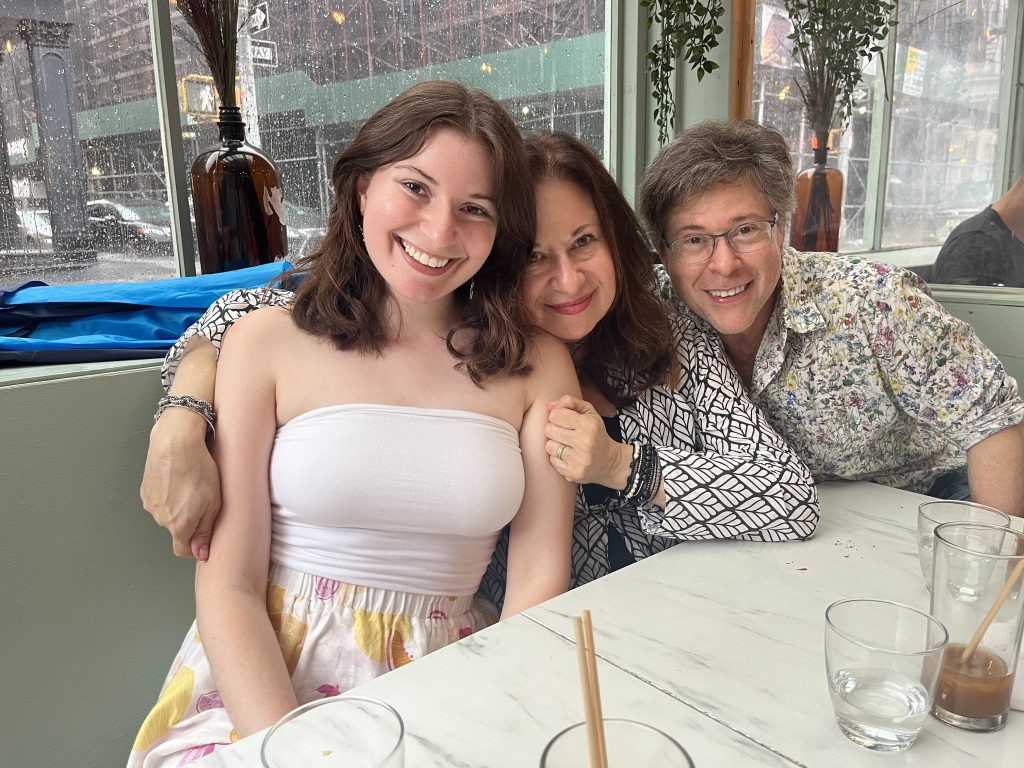Intro
For Washington, D.C.-based composer and educator Joel Phillip Friedman, synthesizing musical genres and eras has always been both an artistic imperative and the most natural thing in the world. As audiences and critics have experienced, Friedman has an uncanny ability to draw on the full range of his formative influences (classical music, jazz, fusion, musical theater, ’60s rock, ’70s soul, and more) in crafting works that are palpably hybrid yet fundamentally organic and cohesive. Like many of his extra-musical influences, including Eastern and Central European writers Nikolai Gogol, Milan Kundera, and Josef Škvorecký, Friedman works with an expansive range of emotions and moods, ranging from the poignant and haunting to the playful and satiric. As Joel himself puts it:
I embrace being called a “synthesist.” As long as I can remember, I’ve been drawn to a wide array of expressive styles and techniques, which in turn draw upon what are often considered separate or even incompatible styles or genres. Part of my early struggle as an artist was being told far too often that various currents in music were by nature siloed or, even more problematically, that some were lesser than others. Nowadays, while I respect the differences among musics, what draws me unfailingly is the opportunity for synthesis and the endless rewards and inspirations that flow from it.
My Beginning
Friedman credits much of his lifelong eclecticism to his mother, a fine and commercial artist and treasured teacher at the Philadelphia College of Art, who would play music of all kinds while she painted at home. From an early age, Friedman recalls hearing classical records by Beethoven, jazz from Charlie Parker and Ella Fitzgerald, classic rock by the Beatles and Cream, musicals including West Side Story and Funny Girl, and the latest finds that his mother gleaned from her young students—all without any sense of musical hierarchy or pedigree.
All three Friedman children took piano lessons from an early age, along with some guitar, but whereas his siblings grew quite proficient, young Joel never truly took to either instrument. A family move to Moorestown, New Jersey and a new school environment presented Joel with his first opportunity (in fifth grade) to take a band class, and trumpet and French horn soon became his instruments. He later taught himself guitar and electric bass. But even at this early age, he found himself drawn more to writing music than to performing, admiring the songs of the Beatles, Chicago, and Earth Wind & Fire, but not really fully cognizant of the role of a composer, or that what he was doing was precisely that—composing. Also drawn naturally to history and science, Joel happened across what would be another foundational influence: the book and BBC TV series Connections, hosted by James Burke, in which the march of history and science was shown to derive far more from quirky happenstance connections than the prevailing “Great Man” theory. Years later, this embrace of disparate influences would inform Friedman’s compositional approach.
Early Days
On a somber note, this period of Joel’s youth was also marked by his father’s suicide—an act that would prompt the family’s relocation to Boston and, much later, resonate within Joel’s emotional palette as a composer. As a high school musician, Friedman played jazz, rock, and classical orchestral and chamber music and also performed in musicals (on stage and in the pit), but he ultimately felt the strongest gravitational pull towards classical music. Although he intended to major in anthropology at Boston University, Friedman tested into honors music theory and later became a composition major within B.U.’s conservatory. There, he found his concept of non-judgmental eclecticism met by resistance from the academy, with its more formal and rigid methods. His book of jazz compositions prompted the faculty query, “When are you going to write real music?” Similarly, an early collegiate success with the musical revue Personals (which he co-authored with his lyricist brother, Seth, and other collaborators), prompted the suggestion from a B.U. faculty member that Friedman write such music under a nom de plume, to avoid “damaging his reputation as a serious composer.” Despite the dismissive reception from the Ivory Tower, Personals received honors from the New England Theater Conference and the American College Theater Festival (with performances at the Kennedy Center in D.C.), followed by a USO European tour of joint U.S. and NATO bases. The experience also cemented for Friedman one of the keystones of his career to come: that collaboration would always play a central role in his work. In Joel’s own words:
The impulse and reward of collaboration is something I’m always seeking, whether it’s actively writing with collaborators, working closely with performers to bring a new work to fruition, or, in my earlier days, playing in bands. Composition, for me, does not have to be a solo or solitary process—collaboration is in my DNA.
New York: From Glamorous Freelancer to DMA
After earning Mus. B. and M.M. degrees at B.U., Friedman relocated to New York City to launch his career as a composer in earnest. In 1985, Personals opened Off-Broadway at the Minetta Lane Theater, with the likes of Jason Alexander and Dee Hoty in the cast. The New York Post proclaimed the work “a winner…the brightest revue of the year, and indeed of many a year.”
Back in the classical vein, Friedman composed his Concerto (in the Form of Variations) for Viola and Orchestra—an elegiac work whose emotional depth Joel traces to his long-evolving response to his father’s suicide—which was premiered in 1990 at Carnegie Hall by Paul Neubauer (viola), Jorge Mester (conductor) and the National Orchestral Association (whose Executive Director, Jenny Bilfield, would later become his wife). The New Yorker hailed the work’s “poetic, beautiful, and intelligent exploration of a long, eloquent melody, through variations that are at first musing and gentle, then passionate, finally simple, confident, and serene.” The concerto received the 1988 ASCAP Foundation Morton Gould Young Composer Award and won the 1989 New Music Orchestral Project competition.
While continuing to hone his craft, Friedman did freelance copying and editing for the great Leonard Bernstein and served in 1991 as artistic director of the Hudson River Museum, “Art of Music,” and “Summer Jazz.” Despite the early success of Personals, Friedman felt a stronger pull towards concert music, and in 1992 decided to resume focused study by pursuing his doctorate in composition at Columbia University, where he was a President’s Fellow and Mellon Scholar.
During his time at Columbia, Joel experimented, drawing on his many musical influences while being mentored by the inventive and supportive composer/theorist Jonathan Kramer. Elastic Band (1996, rev. 2015), originally written for clarinet, string quartet, and percussion, and partially composed earlier at the MacDowell Colony, was a watershed work. It has proven to be one of his most popular, performed, and recorded compositions, now with many orchestrations, including one for chamber orchestra. Reviewing a performance in Northern California, the San Jose Mercury News praised Elastic Band as “a work of serious fun, which also draws on pop and jazz,” adding, “[Friedman] has ingeniously transformed popular themes in a chamber setting. He even cops (his admission) Ringo Starr’s famous, thudding drum solo from the Beatles’ Abbey Road and turns it into a motif. The second movement takes on Duke Ellington’s “jungle music” of the ’20s, when the great Sonny Greer sat behind the traps.” In addition, Joel’s setting of Marie Howe’s searing and powerful poem What The Living Do (1995, rev. 2004) was recorded and extensively toured by soprano Susan Narucki and pianist Alan Feinberg. The virtuosic work for cello and piano Pas de Deux (1994, rev. 2001) comes from this period as well. Artists involved with Friedman’s works at this time included Margaret Kampmeier, Stephen Gosling, Allison Voth, Fred Sherry, and Maria Kitsopoulous.
In addition to propelling his creative work forward, Joel began teaching at the university level, which continues today. From 1996 through 2006 he was Assistant and then Visiting Assistant Professor at Seton Hall University and Swarthmore Colleges, respectively. During this time, he launched what would become signature specialties: courses on The Beatles and Stephen Sondheim.
Westward Ho!
In 2006, Friedman relocated to Stanford, CA with his family (his wife; their young daughter, Hallie; and two beloved African parrots, Percy and Heathcliff), where Friedman divided his time between composing and holding a number of teaching positions at institutions such as Santa Clara University, Stanford University (Continuing Studies Program–through which he continues to teach his courses on The Beatles and Sondheim), and Notre Dame de Namur University in Belmont. Among the works he produced in this period was a true outlier in his oeuvre to date: the score for the independent feature film Red Ice (2011), a supernatural horror thriller that was screened at festivals in San Francisco and Chicago. Friedman’s score combined avant-garde orchestral textures, electronica, Latin music, and more, along with striking contributions from improvising flutist Steve Adams (best known for his work with the ROVA Saxophone Quartet) and the San Francisco–based metal band Kaos. Being commissioned by, and adjudicating for, the 2013 Irving M. Klein International String Competition resulted in a set of three solo string pieces–Uncle Hokum’s Fiddle, When The World Disintegrates Before Your Eyes, and Triptych (for violin, viola, and cello, respectively)–that have been performed worldwide. It was here that Joel’s work was heard by Maestra Barbara Day Turner of the San José Chamber Orchestra, who has since championed his work, commissioning him for the quirky, energetic Movable Home (2015) for string orchestra, mostly composed while a Lucas Fellow at the Montalvo Arts Center, and then the double concerto Inferno.
Eastward Ho!
In 2013, Friedman and his family relocated once again, to their current D.C. residence. Friedman continued to teach at Stanford Continuing Studies and, closer to his new home, added academic positions at Georgetown University and now Catholic University. Energized by the new setting—and inspired by an increased sense of activism as of 2015-16, which included captaining the Democratic National Committee’s Voter Assistance and Protection Hotlines—he began producing new works at an accelerated pace, including two works composed while in residence at the Hermitage Artist Retreat: Continuance for mezzo soprano and tenor viol (2016) and All Things Are Set Ablaze for the vocal trio ModernMedieval (2017), with the latter hailed by the Washington Post as “a diverse yet cohesive work of considerable power.” The Klein Competition later commissioned his theatrical Arias With Dance Glitch (2016) for young laureates Ariel Horowitz (violin) and Lauren Siess (viola) that featured their singing and the choreography of Paul Emerson. Politics and activism also inspired Friedman’s double concerto Inferno (2020), loosely based on Dante’s classic poem, along with musings on authoritarianism and the moral consequences of our decisions. Starting in 2018, Joel began a fruitful and long-standing theatrical collaboration with the New York–based puppetry troupe Evolve Puppets, where he is Resident Composer, scoring their environmental- and humanist-themed plays and short films, which have been seen at La Mama and The Tank and screened at international film festivals.
The Pandemic
As with most musicians, Friedman found himself sidelined by the COVID-19 pandemic in 2019-20—in fact, the originally intended premiere of Inferno was canceled with a week’s notice due to the coronavirus shutdown. However, an influx of available time, along with a sense of having accomplished many of his long-held artistic goals, prompted Friedman to push himself into the immediacy of rock music and areas in which he was not so comfortable—including writing lyrics for his works, a task he had historically left to his brother or other avowed writers. As Friedman described this new challenge:
I used to say, “I’m smart enough not to write lyrics.” But I was looking for a challenge, and I thought of the directness and clarity of The Beatles, plus the brilliance, depth, and humanity of Sondheim. I’m reminded of a favorite maxim from Sondheim: “Surprise me.” The idea is to do something else. Don’t just write a piece of music that fulfills expectations—push past that. I had to embrace a sense of emotional bravery and vulnerability and acknowledge how much had changed in the culture all around me, and in my own life. It felt very authentic—and it’s brought me new happiness.
Friedman’s new lyrical inspiration led him to compose within a form he had admired for his entire life but hadn’t composed as a mature artist: the rock song. His burst of creativity resulted in a number of such compositions, including the politically urgent Dream and the satiric Right in Front of Our Nose! (both 2021). He has recently revisited a long-dormant work for chamber opera/musical theater, Fallings (with his brother, Seth, as librettist). He has also composed the fleet concert opener The Horizon Beyond (2021) for orchestra, a musical theater setting of William Blake’s poem The Angel (2023) for mezzo-soprano and chamber ensemble for the Pierrot ensemble Balance Campaign, along with Sweet Stillness (2023), a choral work with strings offered as a plea for peace, understanding, contemplation, and kindness.
Joy
Following the central years of the pandemic, Friedman faced a new family crisis in 2021-23, with his mother’s descent into and ultimate demise from Alzheimer’s Disease. Despite—or perhaps because of—the great emotional trials of both this experience and the pandemic before it, Friedman now finds in himself a new appreciation in both his life and work for the role of joy. As Joel describes it:
I have arrived at a point where there is more joy and fluidity in my writing and creative process, a more open channel for expression and trusting myself. I’ve taken on unexpected challenges with gusto, often in parallel with some intense life moments. I was interested in so many seemingly disparate styles as a young man—now I have the confidence and skill to work within and/or fuse these styles. And to do it with joy.
Recently Friedman’s score to Evolve Puppets’ Secrets History Remembers premiered at La MaMa in November 2024. On the near horizon in 2025 are a new string quartet commission from the Music Teachers National Association about the effects of disinformation on society for Sound Impact, plus Tommy Mesa and Yoon Lee’s January 19th performance of Pas de Deux on the 2024-25 Phillips Music series in Washington, D.C. Joel is a proud member of ASCAP, Chamber Music America, and the Dramatist Guild.
Revised December 3, 2024
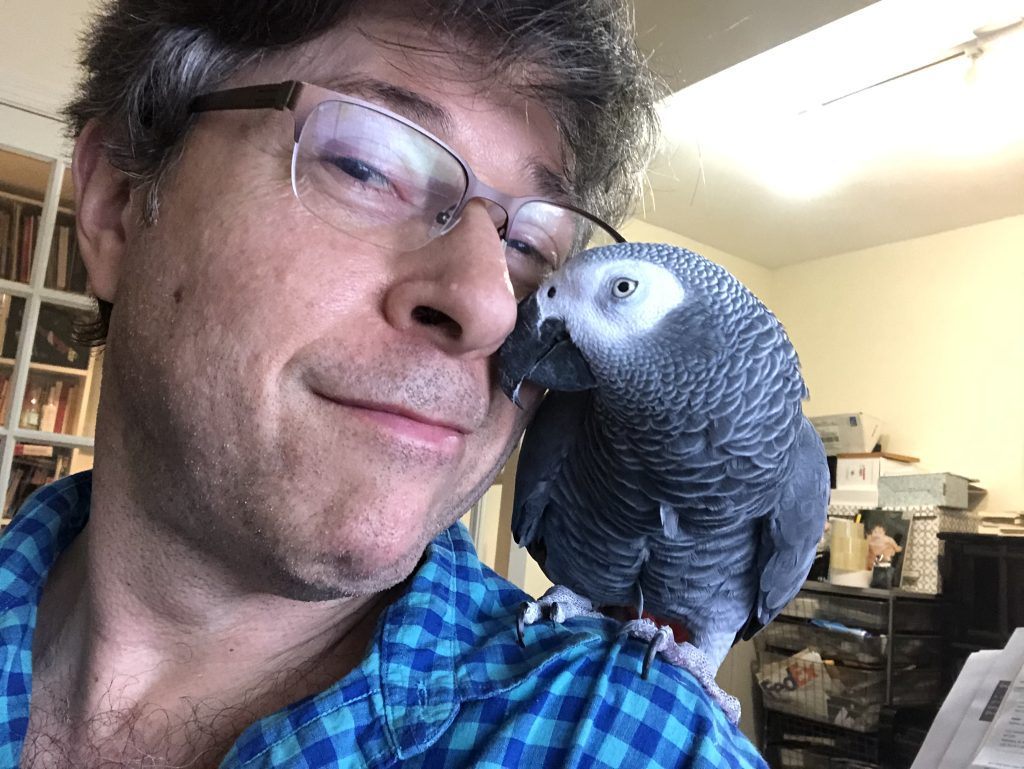
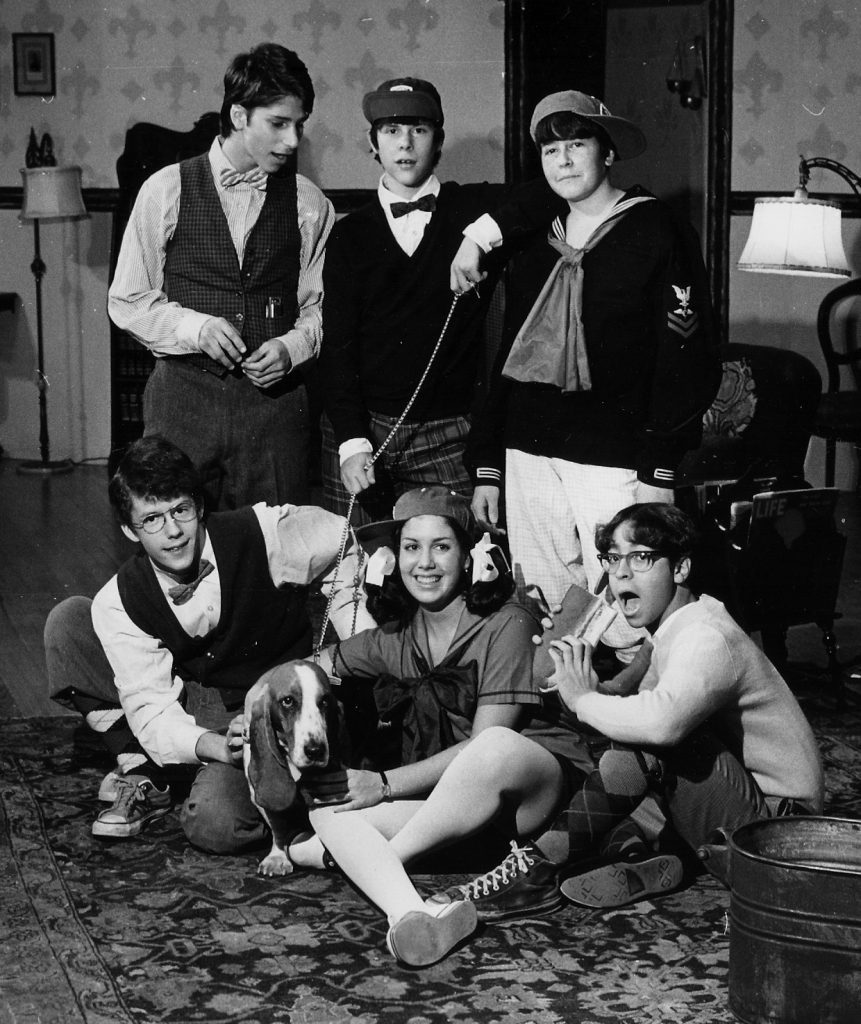
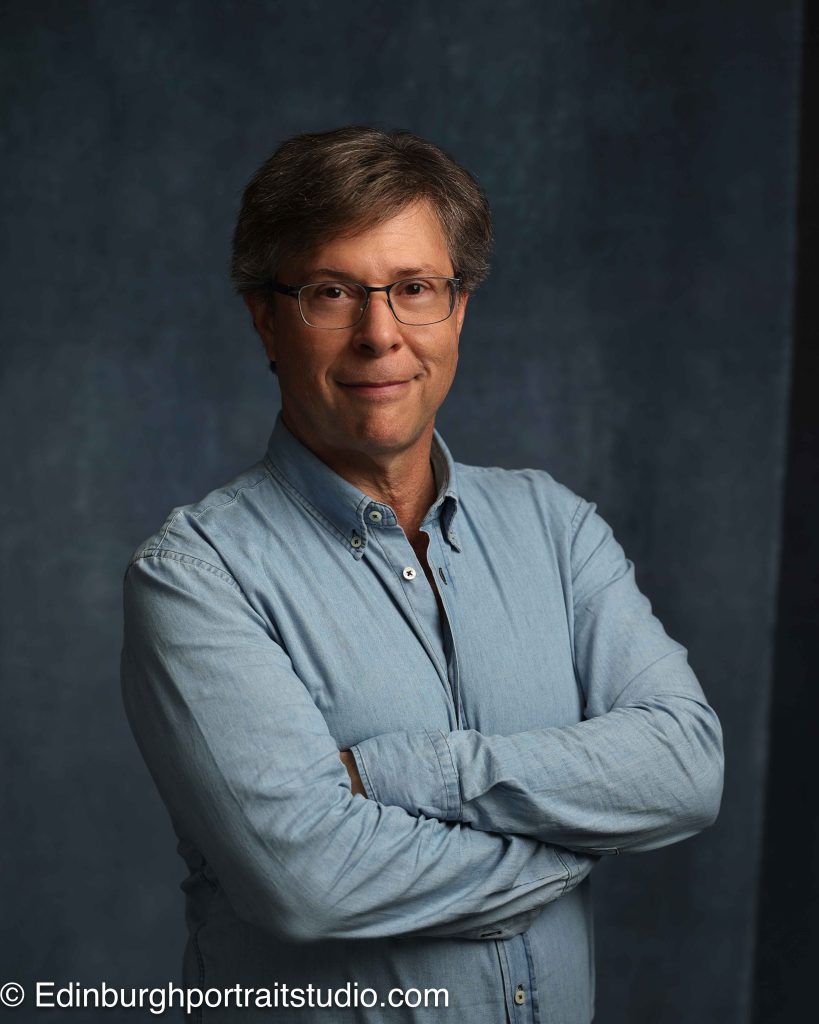
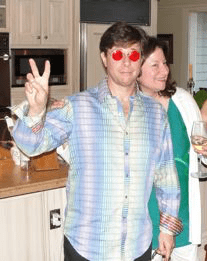
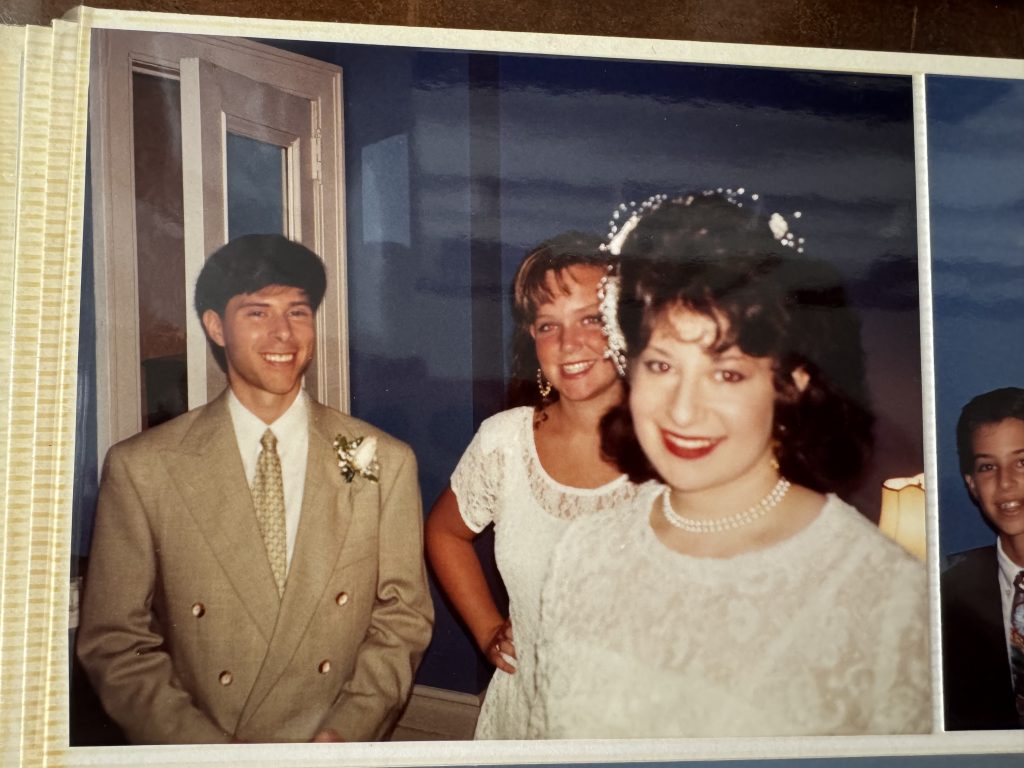
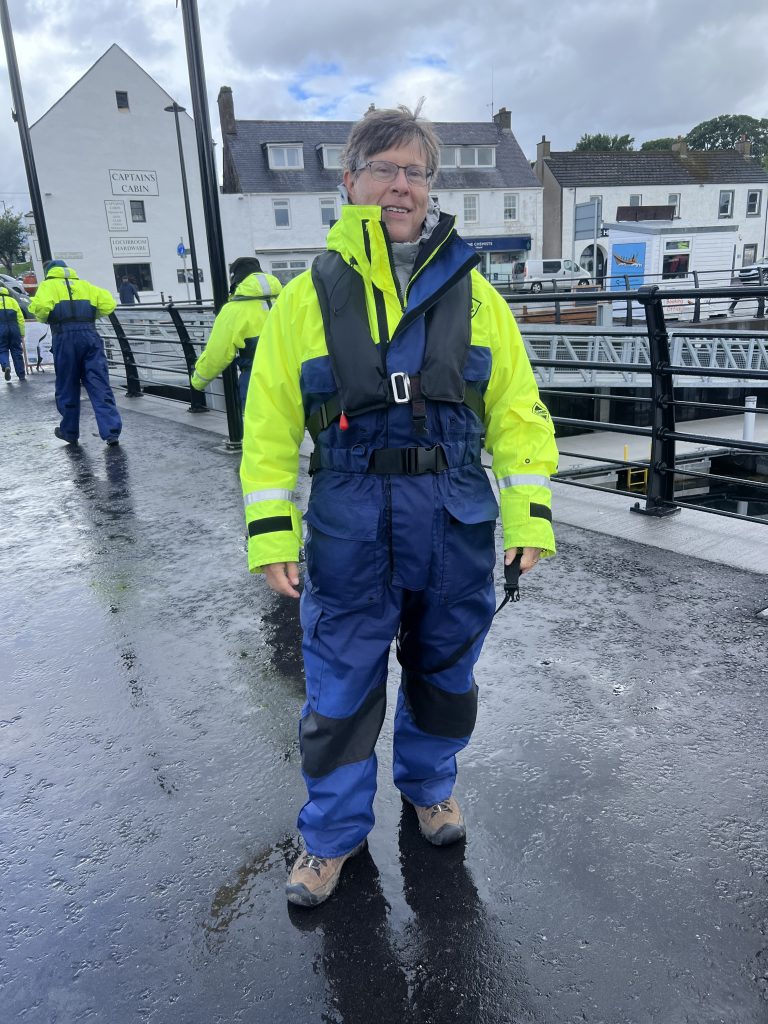
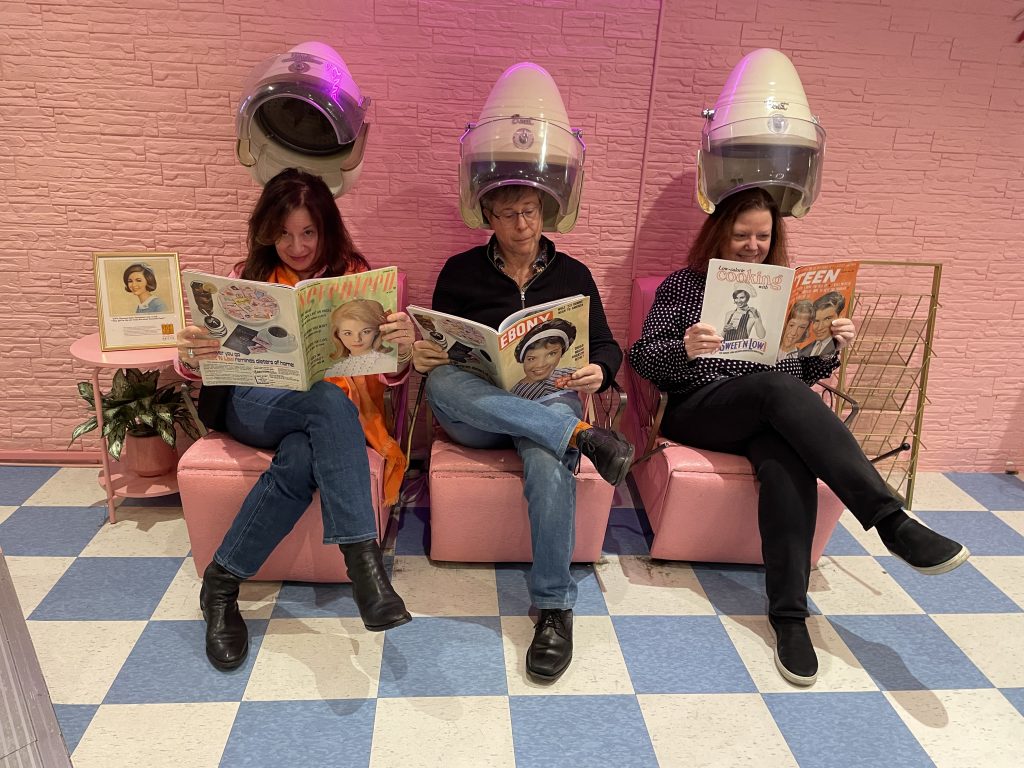
(L—R: J. Bilfield, J. Friedman, J. Cowperthwaite)
